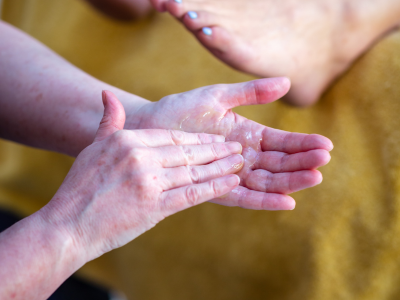Massage and the Brain Health
What are the benefits of massage for your brain?
Massage therapy has numerous benefits for both the body and the mind. When it comes to the brain, there are several ways in which massage can positively affect its function:
Improved brain function
Regular massage has been found to improve brain function by stimulating the release of certain chemicals and hormones that promote cognitive abilities.
Studies have shown that individuals who receive regular massages experience enhanced memory, improved
concentration, and increased mental clarity.
Reduced stress hormone levels
Another benefit of massage for the brain is its ability to reduce the levels of stress hormones, such as cortisol, in the body.
High levels of cortisol can be detrimental to brain health and can lead to decreased cognitive function.
Massage therapy helps to counteract these negative effects by promoting relaxation and reducing stress.
Enhanced relaxation
Massage is known for its relaxation benefits, and this extends to the brain as well.
When the body is in a state of deep relaxation, the mind follows suit. Massage helps to calm the mind, relieve tension, and promote a sense of overall well-being.
This relaxation can have a positive impact on brain health by reducing anxiety and improving sleep quality.
How does massage affect brain health?
The effects of massage on brain health are multifaceted.
Massage therapy can stimulate of neurotransmitters.
Massage stimulates the release of neurotransmitters in the brain.
Neurotransmitters are chemical messengers that play a vital role in transmitting signals between nerve cells.
By stimulating the release of neurotransmitters, massage therapy can improve neural communication and enhance brain function.
Release of serotonin and dopamine
Massage has been shown to increase the production and release of serotonin and dopamine in the brain.
These neurotransmitters are often referred to as the “feel-good” chemicals because they promote feelings of happiness and pleasure.
By increasing the levels of these neurotransmitters, massage therapy can help to alleviate symptoms of depression and anxiety.
Reduce cortisol levels
As mentioned earlier, massage therapy can significantly reduce cortisol levels in the body.
This is particularly beneficial for brain health as high levels of cortisol have been associated with memory problems, decreased cognitive function, and an increased risk of developing neurological diseases such as Alzheimer’s.
Impact on nervous system
Massage works directly on the central nervous system, stimulating the nerve endings in the muscles and promoting overall relaxation.
This can have a profound impact on brain function by reducing muscular tension and promoting a state of mental calmness.
Enhanced brain functioning from exercise.
From exercise often pushing our bodies to the limit, and this can also take a toll on brain health.
Massage can help improve brain function by reducing inflammation, promoting the repair of damaged tissues, and speeding up recovery time.
Neurological benefits of massage
Studies have shown that massage can have several neurological benefits. It can help with pain management, increase range of motion, and improve the body’s ability to sense movement and position.
All of these factors contribute to improved brain function.
Is head massage good for the brain?
Head massage, also known as scalp massage, can be incredibly beneficial for brain health.
Some ways in which head massage can positively impact the brain include:
Improvement in cognitive abilities
Head massage can help improve cognitive abilities such as memory, attention, and concentration.
The gentle pressure applied during a head massage stimulates blood flow to
the brain, delivering essential oxygen and nutrients, which in turn enhances brain function.
Relief from headaches and migraines
One of the most common causes of headaches and migraines is tension and stress.
Head massage has been shown to relieve tension in the head, neck, and shoulders, reducing the frequency and intensity of headaches and migraines.
By relieving this tension, head massage promotes relaxation and overall brain health.
Increased blood flow to the brain
Head massage stimulates blood flow to the brain, supplying it with the necessary nutrients and oxygen for optimal function.
Improved blood circulation can have a positive impact on brain health, promoting clarity of thought, enhanced memory, and overall cognitive functioning.
How does massage therapy help the brain?
Massage therapies offer numerous therapeutic effects on the brain:
Therapeutic effects on the brain
Massage therapy has been found to have therapeutic effects on the brain, promoting relaxation, reducing stress, and improving overall well-being.
By providing a calming and soothing experience, massage therapy can improve mood, alleviate symptoms of anxiety and depression, and ultimately enhance brain health.
Promotion of overall brain health
Regular massage therapy can promote overall brain health by reducing inflammation, improving blood circulation, and stimulating the lymphatic system.
These benefits contribute to optimal brain function and can help protect against cognitive decline and neurological diseases.
Positive impact on neurotransmitters
Massage therapy has been shown to have a positive impact on neurotransmitters (chemical messengers that our body can’t function without) in the brain.
It can increase the production and release of serotonin and dopamine, which regulate mood, emotions, and cognitive function.
By promoting the release of these neurotransmitters, massage therapy
can contribute to improved brain health.


0 Comments